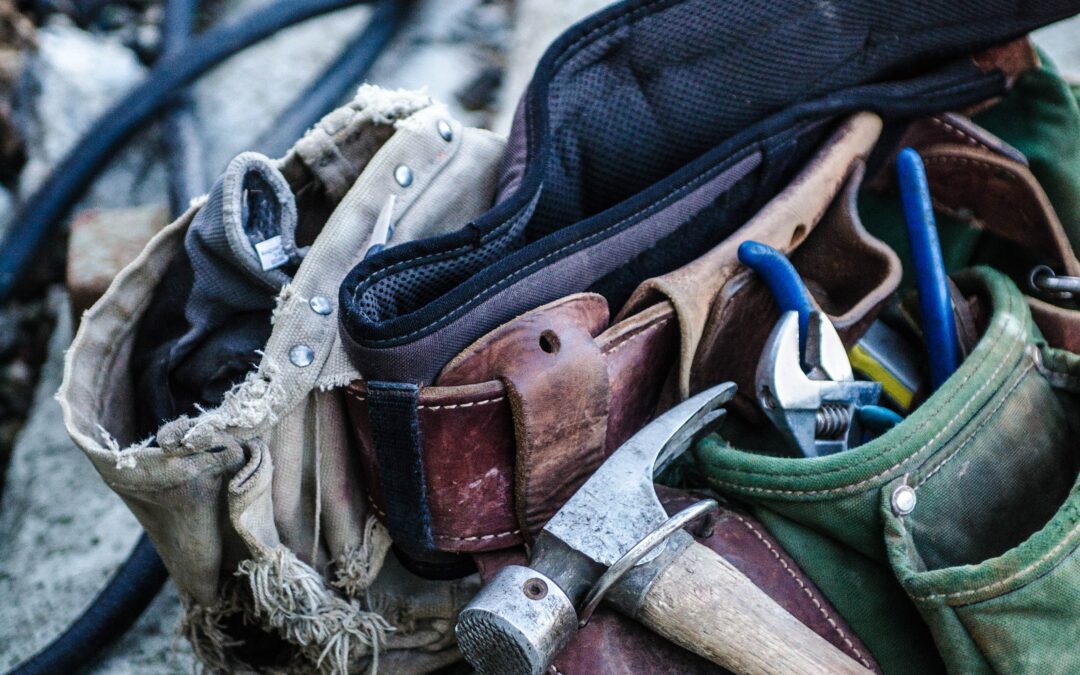The answer is yes. A home inspection will identify what needs to be repaired, what could be repaired, and what does not need attention. If a seller decides to repair everything on their own before selling then they can raise the price of their home to accommodate for the required expenses. If a seller does not decide to repair everything before they sell then they will usually lower the price so the buyer isn’t paying for something that is broken. Sometimes a buyer will sadly pay for a home that needs several repairs for too high of an asking price. This is where a home inspection comes in as a key player in the buying and selling game. A buyer can look at a home inspection and evaluate what has not been repaired, and if it is not included in the price. A home inspection along with the appraisal will ensure a buyer that they are buying their home for the correct price. They will also know how much money and time to be required to put towards repairs.
What Buyers Should Expect to Fix
There are some repairs that buyers should not expect to need corrected, and there are some repairs sellers should always fix when selling. For example, buyers should expect the seller to fix anything related with HVAC, electrical, plumbing, or roofing due to the high impact and importance of these areas. If there are cosmetic repairs that need to be made, it may be easier for the seller to leave them for the buyer. It is easier to leave it to the buyer because everyone has different styles and repairs like painting the walls, repairing tile, and staining a deck are all repairs that someone would want to personalize. Most cosmetic problems are easy to fix, and do not cost much money. Anything under $100 will most likely not be covered by the seller. With there only being so much time to close a deal, the seller can only fix so much. There could be a hundred little things that could be repaired that are under $100 so it makes the deal go faster and more smoothly if the buyer fixes anything under $100. If the seller has any renovations that are already planned, they should refrain from requesting the seller to do them. This will often put the entire sale at risk, and might compromise the sale entirely. Any minor details in a home should not be requested to be fixed by the seller. When requesting too many minor details to be fixed it may upset the seller, and they might continue a deal with other buyers. Yes, it is wonderful to move into a home that is absolutely perfect in the buyers eyes, but that is nearly impossible. The smoothest way to buy a house is to have the seller fix the major details, and the buyer will have to fix the minor details to ensure that the buyer gets the home.
How to Buy a “Fixer Upper”
A fixer upper is easier, and more calming to buy when purchased after a home inspection is complete. With a home inspection, a buyer will know what needs fixed, and what they will be paying to fix once they buy the home. Some properties will be lower in price due to location, and time of purchase. The amount to fix your fixer upper will not change due to time and location since supplies and labor will not vary that much from store to store or laborer to laborer. After your home inspection you will know the price of your home, and can then evaluate the price you will be paying for repairs. Therefore, the best time to purchase a home is after an inspection, so you have a full detailed list outlining what the seller could/should have fixed, and what problems you will be adopting after the purchase is complete.
Types of Fixes
Obviously, the fixer-upper’s going to be in a tricky condition, but some issues are worse than others. You need to separate the cosmetic problems from the more fundamental and critical ones.
Easy fixes include:
- Patching walls, stripping wallpaper, and painting
- Refinishing floors, or laying tile or carpet
- Installing ceiling fans and new light fixtures
- Replacing baseboards or adding trim
- Fixing broken windows
- Replacing bathroom subfloors
- Refacing,painting kitchen cabinets, or installing new ones
- Replacing doors
- Changing out receptacles and light switches
- Painting the exterior of the home
- Adding a deck
More expensive fixes include:
- Replacing HVAC systems or even adding central air conditioning
- Shoring up foundations
- Reroofing, when it involves a tear-off and complete replacement
- Replacing all plumbing, sewer lines, and electrical service
- Pouring concrete for driveways, sidewalks, or steps
- Installing replacement windows throughout the home
- Complete kitchen or bath remodels
- Building garages or additions
Types of Inspections
In any real estate transaction, it is highly recommended to get a home inspection by a credentialed home inspector before committing to the sale. There are many types of home inspections that you may want to consider before buying a fixer-upper. Consider these in the cost when looking into purchasing:
- Roof certifications: If the seller hasn’t already provided evidence as to the age and condition of the roof, obtaining a roof certification at the seller’s expense is good business practice.
- Home warranty: Not all sellers will pay for a home warranty, but many view it as insurance against those late-night phone calls when things break after closing.
- Pest inspections: Pest problems vary by location, but if your area is prone to home/building damage from beetles, termites, or ants, ask for a pest inspection and make your purchase offer contingent on the approval of the inspection and any seller-paid repairs. Click here if you are wondering how a home inspection can help identify pest infestation issues.
- Sewer line inspections: As properties age, so do their sewer lines. Have these and septic tanks checked out.
- Engineering reports. An engineer can make natural hazard or geological disclosures. Pay attention to landfills nearby, contamination reports, and other detrimental resale hazards.
Not all fixer-uppers require equal attention—and what technically needs to be fixed is somewhat subjective. A major rehab for one homebuyer is a walk in the park for another. Consider your expertise, your finances, and to what extent you want to tackle a home that requires serious renovation to make it habitable. Some fixer uppers can be fixed with a few repairs while some require a complete makeover.
Final Words
Every buyer wants to fix their home up a little bit at least. From cosmetic repairs to major repairs. Everyone wants their home to be unique to their own liking. From a complete renovation, to simply patching and painting the walls. There will always be some type of extra expense you will put into the new home to make it your own. No one wants the news of an unexpected broken HVAC system, electrical route, or sewer line two months after they just put down thousands to millions of dollars on a home they initially thought was in perfect condition. The best way for the seller to make the most profit out of their home is to repair all the things that the home inspector identifies as needing repair, and for the buyer to look through the inspection so they know what all has been fixed or needs attention so they can determine if they are paying a good price for the value and effort that needs to be put into it. A professional walk through from Ernst Home Inspections will ensure that you are getting the best bang for your buck with complete transparency and honesty throughout the process.

